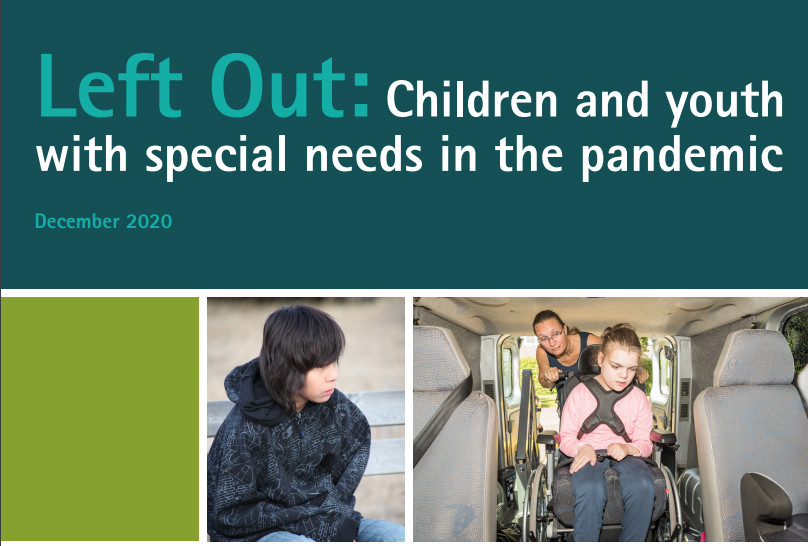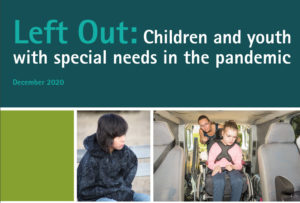
BC’s Representative for Children and Youth, Dr. Jennifer Charlesworth, released a report yesterday addressing the impact of the pandemic on children and youth with special needs. The report reflects much of what Inclusion BC has been hearing from families since the pandemic began as well as concerns that have been raised for years. It details long waitlists, inadequate respite and communication breakdowns that have led families to their breaking point.
We are encouraged by the response from Minister Dean and stand ready to participate in the collaborative table and look forward to hear further details about the implementation of the service framework.
Over the past two years, the Ministry for Children and Family Development has worked with families and community leaders to design much-needed systemic reforms through the new Children and Youth with Special Needs (CYSN) Framework. This Framework needs to be adequately funded and implemented without further delay to strengthen inclusion and equity while reducing barriers to access.
Similar past reform attempts failed due to inadequate budget investment and a ministry culture that has resisted meaningful collaboration and partnerships. We are hopeful that this time can be different, that we can work together to drive real change.

“The pandemic has revealed a system that fails children with disabilities, denying them opportunities that the rest of us take for granted. As we navigate a second wave and chart a future past the pandemic, we can’t go back to the way things were. It’s simply unjust and inexcusable to leave their families alone and unsupported, which is what we’ve done for far too long.” – Karla Verschoor, Inclusion BC Executive Director
Inclusion BC joins the Representative in urging seven immediate actions to support families of children and youth with special needs:
- more and better communication between the Ministry of Children and Family Development and CYSN families, community providers, family networks and advocates
- one-year extension to fall 2021 of all pandemic-related benefits and processes for CYSN families
- creation of a special working table bringing together families, community organizations, advocates and funding ministries for regular check-ins and problem-solving
- funding support for community organizations to help families find alternative services
- a review of virtual service provisions in the first months of the pandemic to inform an improved approach as the pandemic continues
- streamlined processes for emergency benefits and approvals that minimize the paperwork and administrative burden for families and continue to function in the disruption of a pandemic
- exploration of the concept of support “bubbles” for in-home services to reduce the risk of exposure to COVID-19 for both family members and service providers
- declare CYSN families essential workers for the purposes of allowing them to access critically
important services during pandemic lockdowns.
Links
- Read the RCY News Release
- Report: Left Out: Children and Youth with Special Needs in the Pandemic
- Minister’s statement on representative’s report
Media:
- Children and youth with special needs suffering greatly in the pandemic, representative says – CBC
- Report Finds BC’s Kids with Disabilities ‘Left Out’ During Pandemic – The Tyee
- COVID-19 disproportionately affects children and youth with special needs: B.C. report – Global
Background
Family caregivers play a critical role in helping to build strong communities by raising healthy, resilient children and youth. All families need and benefit from formal and informal community supports, which are especially critical to ensuring successful outcomes for vulnerable children and youth.
During COVID-19, family caregivers stepped up to provide a critical safety net when many of our formal school, health and social programs were curtailed or put on hold. Many of these families were already exhausted by the stresses of supporting children and youth with complex needs without adequate professional help. They had no choice but to take on these added support roles while also struggling with the same broader COVID-19 stresses as the rest of us.
The pandemic exacerbated well-documented flaws of an opaque, complex, rigid and often inequitable system that too often fails families instead of meeting them where they’re at. Ministry efforts to provide limited relief within a flawed framework fell disastrously short of what was needed, resulting in extreme hardship and harm.


